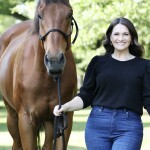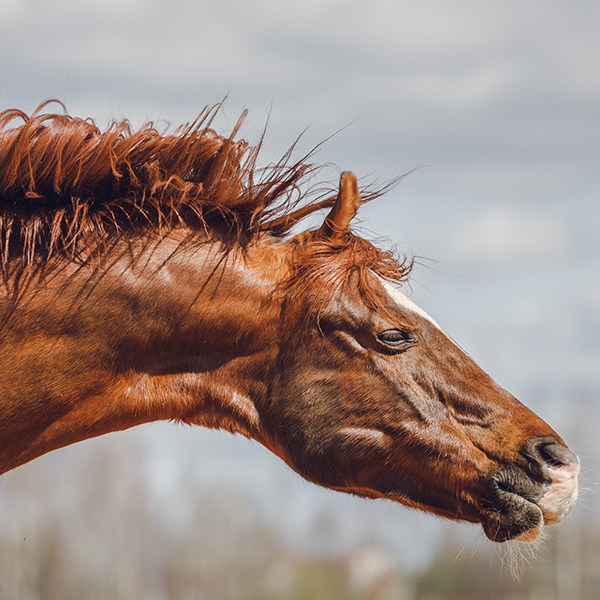Observed Behaviors of Horses and Livestock during Solar Eclipses
Have you noticed how human and animal behavior can change with natural events? We horse people know how things like barometric pressure, and even cool snaps can affect our horses, but what about astrological phenomena such as solar eclipse?
We know that horses are intuitive, sensitive and flight animals, so it isn’t far reaching to wonder if events like a solar eclipse will have a behavioral effect on your horse or horses. The greatest shift in nature will take place far above the ground we stand on in the ionosphere. The ionosphere is the band of atmosphere that ranges from an altitude of 60 to 300 km (37 to 190 mi.) According to NASA the ionosphere is denser during the day, turbocharged by incoming radiation from the sun.
During a solar eclipse, ions, the electrically charged particles that make the ionosphere will become less dense. This will lead to a cooling effect in the upper atmosphere and will cause depletions known as ionospheric holes. So how does this affect the living beings on the ground?
Once the concentration and the density drops in can cause disruptions in things like radio frequency and GPS. The temperature will drop and the wind will also slow. As cool air towards the ground pushes up into warmer and more humid air thunderstorms will also form.
The eclipse will have a dusk like effect causing insects and bats to venture out and to start feeding. Birds may retreat such as they do before dark. As the eclipse peaks and sunlight grows stronger again birds may start chirping more loudly, as they do during morning hours.
According to Liz Aguilar, a PhD candidate in biology in the University of Indiana's evolution, ecology, and behavior program, “wild herds or ones in paddocks away from barns, may cluster together, and begin shaking their heads and tails. It is not entirely clear why they engage in these movements. Head-shaking and tail-swishing are far more common as an agitated response to flies. So-called “photic head-shaking” actually occurs when horses are exposed to bright sunlight, which is the opposite to what happens during an eclipse.”
I decided to evaluate my horses during the peak time of the solar eclipse. I had plans to work my Thoroughbred, Kevin, during lunch. I decided to push that back, and do groundwork closer to the peak of the solar eclipse, which was at 1:58 pm.
I started grooming Kevin closer to 1:30 and walked him in an area behind the barn to work on united circles and untracking groundwork. I noticed immediately while grooming that he seemed overly agitated by flies. The fly population did seem elevated and I simply thought, “gosh the flies are hatching.” However as I began to notice Kevin’s overly sensitive behavior I do believe it was tied to what was happening above us. There was an increase in bugs, and he was just “extra” as I like to call it.
As we worked on the ground he was also overly jumpy. He was looking in every direction, not noticing me and just seemed to be having a very spooky day. As I tried to work him through his spookiness I noticed the daylight get darker, but the “light” seemed skewed. It had a green tint, something I notice during heavy thunderstorms and tornado weather.
As we finished our groundwork I turned him and my two other horses out. This was about 10 to 15 minutes before the solar eclipse peaked. Gage walked straight into my back and brushed his entire head and neck on me. I greeted the rough shrug with displeasing words. I then turned out my Mustang, and he too was “extra.” The little Mustang was eager to get to his friends and then turned and looked at me high headed like I was a monster. I noted that all three seemed to be behaviorally agitated, spooked, and sensitive, something they were not when I brought them in for breakfast closer to 7:30 this morning.
As I watched them in the pasture, during the peak of the solar eclipse, I noticed they were all swishing their tails, shaking their heads and bodies as if they had swarms of flies on them. Gage rubbed his entire body on Kevin, what he had done to me 10 minutes prior, and all three stood extra close together, literally clustering together.
Overall researchers have observed domesticated and wild animals tend to display anxiety-like behavior during solar eclipses. Dogs have even been observed cowering during an eclipse. The behavior my horses displayed was 100% in line with what researchers have observed. Humans will gather and look upwards, but as equestrians it might not be a bad idea to skip a ride or training session during a solar eclipse.
I’d love to hear from our readers about any unusual behavior your horses and farm animals may have displayed. Feel free to email me your own observations so we can publish them in the upcoming May issue. Please email labbott@thehorsereview.com.









